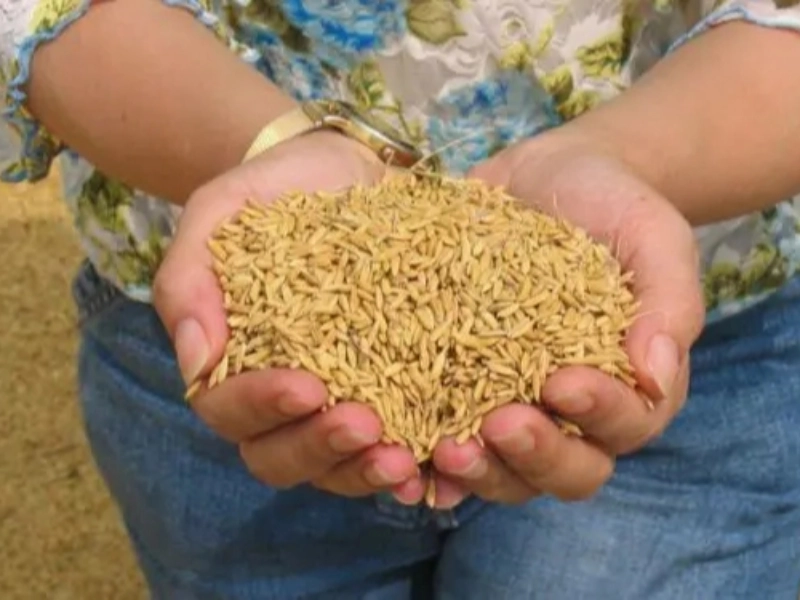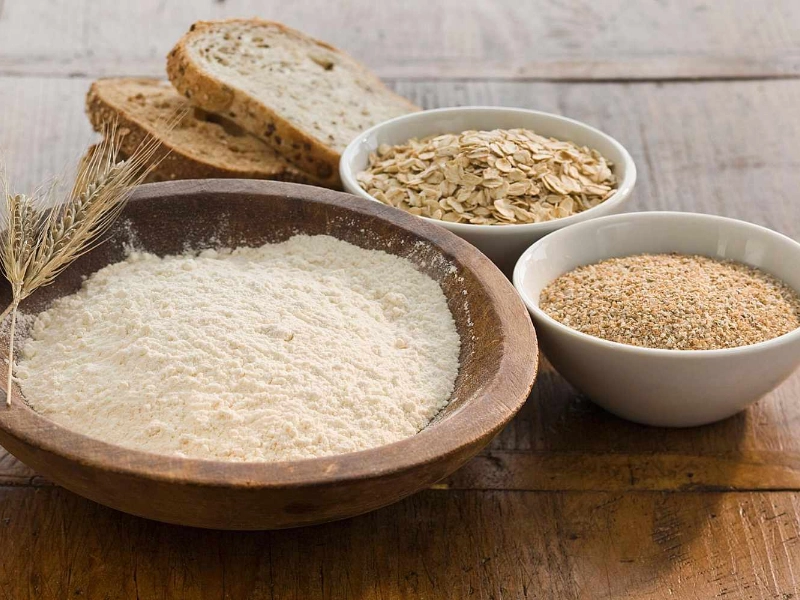Offering several advantages for cardiovascular health, whole grains are an essential part of a diet aimed at a heart. Rich in minerals, vitamins, and fiber, they are a great natural alternative for naturally reducing cholesterol. Including a range of grains in your meals will help your heart health while nevertheless providing great and filling cuisine. The kinds of grains that help control cholesterol are discussed in this article together with their effects on the body and useful advice for adding them into your diet.
 Found in the blood, cholesterol is a waxy material necessary for several body processes including cell membrane synthesis and hormone manufacturing. Elevated low-density lipoprotein (LDL) cholesterol, sometimes known as "bad" cholesterol, can, however, cause artery plaque development. Heart disease, heart attacks, and strokes all become more likely as this build-up mounts. On the other hand, "good" cholesterol—high-density lipoprotein (HDL)—helps eliminate LDL cholesterol from the bloodstream. A well-balanced diet high in whole grains can help to sustain normal cholesterol levels, therefore enhancing general heart health.
Found in the blood, cholesterol is a waxy material necessary for several body processes including cell membrane synthesis and hormone manufacturing. Elevated low-density lipoprotein (LDL) cholesterol, sometimes known as "bad" cholesterol, can, however, cause artery plaque development. Heart disease, heart attacks, and strokes all become more likely as this build-up mounts. On the other hand, "good" cholesterol—high-density lipoprotein (HDL)—helps eliminate LDL cholesterol from the bloodstream. A well-balanced diet high in whole grains can help to sustain normal cholesterol levels, therefore enhancing general heart health.
 Soluble fiber is one of the main parts of whole grains that helps to decrease cholesterol. Dissolving in water, soluble fiber forms a gel-like material in the digestive tract. By binding to bile acids and cholesterol, this gel stops their absorption into the bloodstream. The body must so use cholesterol from the blood to synthesis fresh bile acids, hence reducing LDL cholesterol levels. For anyone trying to enhance their heart health, foods high in soluble fiber— oats, barley, and legumes—are great choices. Including these grains in your diet can help you to maximize soluble fiber's ability to decrease cholesterol.
Soluble fiber is one of the main parts of whole grains that helps to decrease cholesterol. Dissolving in water, soluble fiber forms a gel-like material in the digestive tract. By binding to bile acids and cholesterol, this gel stops their absorption into the bloodstream. The body must so use cholesterol from the blood to synthesis fresh bile acids, hence reducing LDL cholesterol levels. For anyone trying to enhance their heart health, foods high in soluble fiber— oats, barley, and legumes—are great choices. Including these grains in your diet can help you to maximize soluble fiber's ability to decrease cholesterol.
 Many varieties of whole grains can help with heart health. Oats' great soluble fiber content makes them especially well-known for reducing cholesterol. One can savor them as porridge, mixed into smoothies, or in baking. Another great selection with soluble and insoluble fiber is barley. A nutrient-dense grain, quinoa provides a full protein source together with advantages for heart health. Beneficial are also brown rice and whole wheat items including bread and pasta. Including many of these grains in your meals will boost heart health and supply important nutrients.
Many varieties of whole grains can help with heart health. Oats' great soluble fiber content makes them especially well-known for reducing cholesterol. One can savor them as porridge, mixed into smoothies, or in baking. Another great selection with soluble and insoluble fiber is barley. A nutrient-dense grain, quinoa provides a full protein source together with advantages for heart health. Beneficial are also brown rice and whole wheat items including bread and pasta. Including many of these grains in your meals will boost heart health and supply important nutrients.
 Including whole grains to your diet may be easy and fun. For a filling breakfast, start your day with a big bowl of oats topped with fresh fruit and nuts. Sandwiches should be made with whole grain bread; use brown rice over white rice as a side dish. Try barley soups or quinoa salads to add fresh tastes and textures to your meals. To boost the fiber count of your baked products, think about replacing all-purpose flour with whole wheat flour. Your general heart condition can be much improved by these few adjustments.
Including whole grains to your diet may be easy and fun. For a filling breakfast, start your day with a big bowl of oats topped with fresh fruit and nuts. Sandwiches should be made with whole grain bread; use brown rice over white rice as a side dish. Try barley soups or quinoa salads to add fresh tastes and textures to your meals. To boost the fiber count of your baked products, think about replacing all-purpose flour with whole wheat flour. Your general heart condition can be much improved by these few adjustments.
Apart from reducing cholesterol, whole grains offer several further health advantages. Essential nutrients abound in them: B vitamins, iron, magnesium, antioxidants, and others help to maintain general health. Whole grain diets have been linked to a reduced risk of several malignancies and type 2 diabetes among other chronic conditions. Moreover, whole grains' fiber helps to maintain regular bowel motions and a good gut flora, therefore enhancing digestive health. Giving whole grains top priority in your diet will help you improve your general health in addition to cardiac condition.
Although controlling cholesterol levels depends mostly on nutrition, other lifestyle choices are also rather significant. Heart health can be much improved by regular physical exercise, weight control, and avoidance of smoking. While lowering LDL cholesterol, aerobic activities including swimming, cycling, or walking can help raise HDL cholesterol. Moreover, controlling stress by means of mindfulness techniques or leisure activities could improve heart condition. You can significantly support your cardiovascular health by using a comprehensive strategy including a healthy lifestyle and a heart-healthy diet high in whole grains.
See healthcare experts for tailored dietary and lifestyle recommendations to maximize your heart health. A certified dietician can assist you to design a balanced meal schedule including whole grains and other heart-healthy foods catered to your specific needs. They might also offer direction on cooking techniques, food choices, and serving quantities. Regular visits to your doctor will enable you to keep an eye on your general cardiovascular condition and cholesterol levels. Working with experts allows you to create a thorough plan to naturally lower cholesterol and preserve a healthy heart.